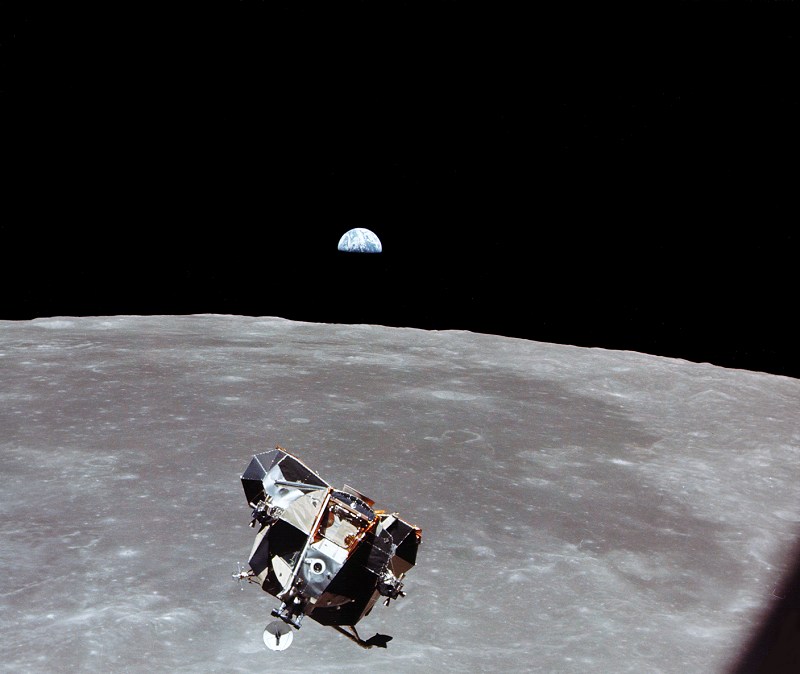On July 20, 1969, Alex and I had a TV that only received one local Chicago station, so we spent the afternoon and evening at the home of his best friend, watching the CBS network coverage of the Moon landing and the subsequent (and long-delayed) emergence of Neil Armstrong (and then Buzz Aldrin) from the LEM. I remember how focused we were on the screen and on the voice detailing the descent to the surface, and the enormous feeling of satisfaction that I experienced at the words “the Eagle has landed.” Finally, FINALLY, nearly a decade after hearing Kennedy’s speech promising the Moon, after following the space program, Mercury, Gemini, Apollo, I saw and heard it happen. An awkward-looking, spindly-legged little machine was making it possible to explore a place you couldn’t reach on a sailing ship or a dogsled. It was the great validation of the long history of stories about lunar voyages, Lucian of Samosata, Cyrano de Bergerac, Jules Verne, H. G. Wells. And at that moment, it felt like the future had really begun.
We waited for hours, hoping the astronauts wouldn’t pause to take a nap before going outside. How could they? They had to be as excited as we were to see what it was like out there. All evening we watched Walter Cronkite fill air time, talking to Wally Schirra at the anchor desk, and then—shock of shocks—interviewing Robert Heinlein and Arthur C. Clarke, because, after all, this was the stuff of science fiction. And I had to laugh when Cronkite began to introduce Heinlein and Clarke to each other, and Heinlein short-circuited him by observing that Clarke had visited his home. Cronkite’s staff hadn’t done their homework, and so he didn’t know what a small community science fiction was in those days. I remember Heinlein saying this was the most significant day in the history of the world, and though that sounded fairly pretentious, there was some level on which I had to agree with it. But I also remember that in the course of gathering man-on-the-street reactions for the broadcast, one reporter went to some outdoor musical extravaganza and asked an audience member what he thought, and the guy said he didn’t care about the Moon landing, it wasn’t important—all those people gathered to listen to the music was what was important. And I wanted to scream at him, “Are you insane?”
Finally Armstrong and then Aldrin went outside, and we got to see what the Moon was really like, not from orbit, not telescopic photographs, but the real thing. The guys hopped around in seeming slow motion, lightweight in spite of their big clunky suits and life-support gear, their boots kicking dust in startlingly straight, long sprays. Solid ground, footprints visible, the flag artificially stiff on its pole, and the airless sky black, as I had known it would be, even though the sun was shining, because this was Live from the Moon! As long as I could remember, I had looked forward to a handful of wonderful events—a total eclipse of the sun, the return of Halley’s Comet, and the first trip to the Moon. I’ve still never seen that eclipse, and Halley’s comet was a disappointment, but my sense of wonder was diamond-bright on that July 20, 1969.
Phyllis Eisenstein is an American science fiction and fantasy author. Her short fiction has earned three Nebula award nominations and two Hugo award nominations. In addition to writing, she has been a faculty member of Columbia College Chicago, teaching science fiction and fantasy writing.










